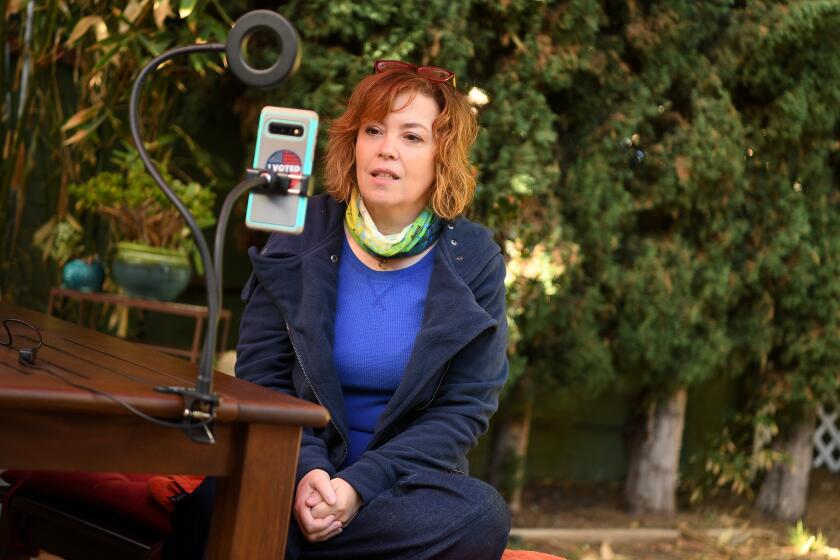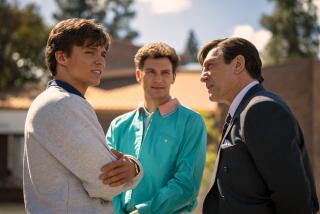How a brother’s obituary for his ‘Special Sister’ became a poignant internet phenomenon
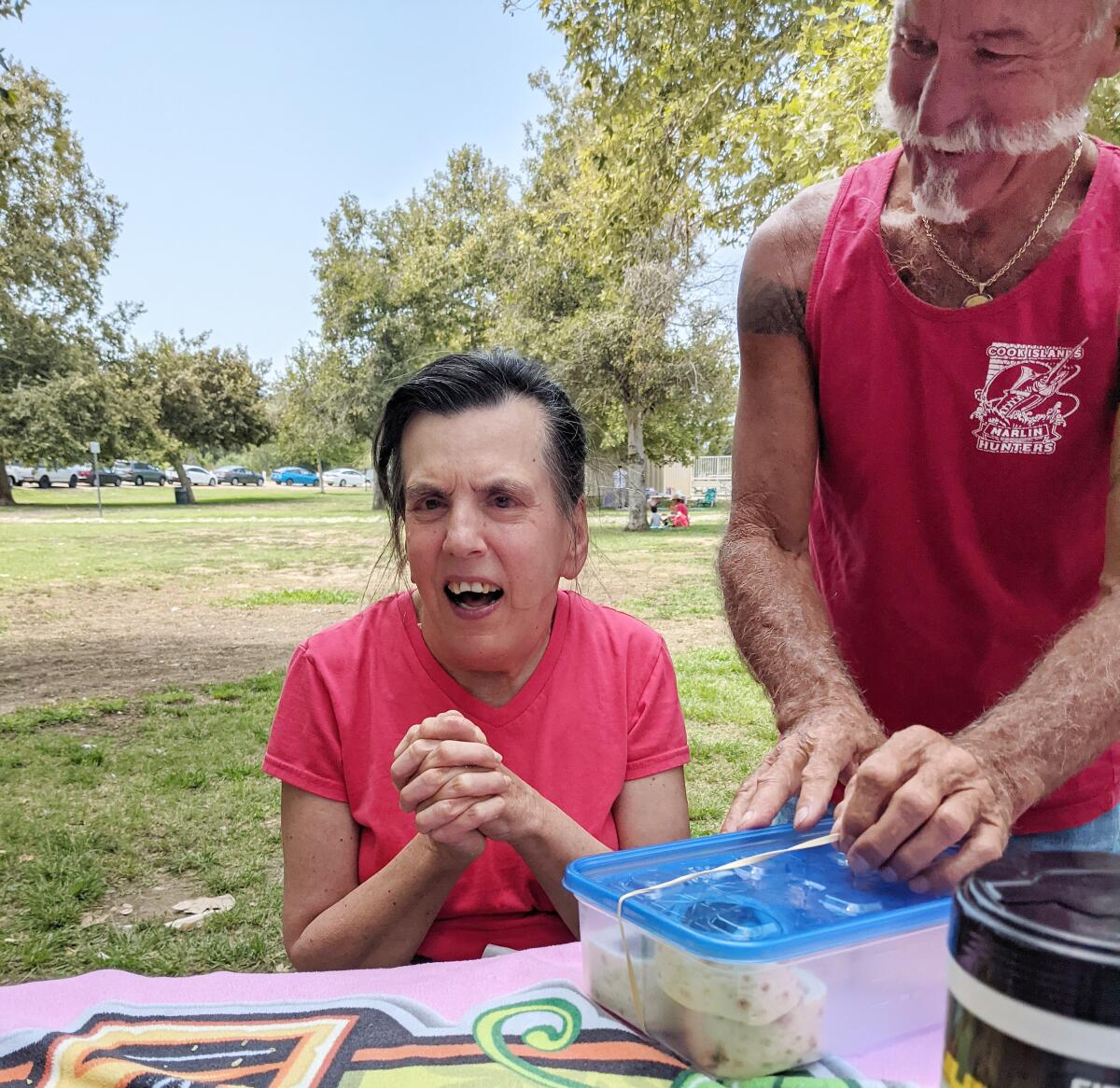
- Share via
It was a 189-word obituary titled “A Special Sister.” Its brevity belied its weight. The grief was palpable. So was the love.
Karen Ann Sydow died Sept. 5 at the age of 61, and two days after her death, her brother, Erik Sydow, began sketching out a written tribute from the patio of his Oxnard condominium.
What Erik shared was the story of a woman who “never had wants or misgivings.” Karen, he wrote, had cerebral palsy and could speak only three words: “Mom,” “Piano” and “Donalds,” a reference to McDonald’s, her favorite eatery.
Still, she experienced unbridled happiness, laughing and clapping on a recent “sunny bike ride” by a lake, Erik wrote. That August visit was the siblings’ final one, and with it came a moment of unexpected understanding. Karen put her head on Erik’s shoulder and shed tears, making clear she grasped the loss of their mother, who died in May.
Two weeks later, Karen died of heart and respiratory failure. “I think she really wanted to be with mom,” Erik wrote.
And then he addressed his sibling: “Karen, I wish I could have made you laugh one more time. I needed you too.”
Sitting at our breakfast table on Saturday, my wife spotted Erik’s tribute in the paid obituary section of The Times. She looked up from the newspaper, near tears, and told me to read it. By the end of it, there was a catch in my throat, too.
What Erik had written captured his sister’s essence. It also felt universal, so I took a picture of the obituary and shared it on Twitter.
The discourse there often descends into the cynical and shrill, but Sydow’s remembrance struck a chord. Before long, thousands of people, some typing through tears, had shared condolences, from anonymous users to major TV personalities.
“My father died in the 1918 flu,” my dad told me. Only later did we learn how the pandemic created enduring family secrets and mysteries.
A woman who said that she had been Karen’s teacher wrote, “Every student is precious because every student is someone’s baby or sibling or loved one.”
Others from around the world had never met the Sydows, but could relate to the account of a close relative’s medical issue. Some parents explained the joy — and pain — of caring for a child with cerebral palsy. “He’s an amazing person and I dread the moment we depart from each other,” one mother wrote of her son.
And still others shared how they’d been affected by Erik’s writing. “If the point of an obituary is to make you feel you knew the person and to share their loss then the fact her brother did so in so few words is astounding,” one person wrote. “What a beautiful tribute. Thank you for sharing your sister with us Erik.”
By Monday afternoon, the tweet had accumulated more than 184,000 likes. More than 2,000 people had left comments. Twitter data showed that nearly 10 million people had seen it.
I wondered if Erik knew that his obituary had become an internet phenomenon, so I reached out to the 64-year-old cabinetmaker. He had no idea that his tribute had been widely shared, and he was touched by the outpouring of support. But he was more interested in talking about his little sister.
Karen Ann Sydow was born in Newburgh, N.Y., on Dec. 9, 1959, the daughter of Shirley and Eugene Sydow. Her earliest years were ordinary. “We never knew anything was developmentally wrong with Karen until she was 3 years old,” Erik said.
But once the details of Karen’s condition emerged, her parents worked hard to give her the support she needed and moved to West Hills in 1963 so that Karen would have access to better medical care.
As a child, Karen loved listening to records on her father’s phonograph, which may have cultivated her love of piano. “She would be in front of the stereo all afternoon,” Erik remembered.
And when Eugene came home from a day’s work — he was a software engineer — Karen would crawl onto his back while he took a catnap. For her, it was a soothing ritual, one that continued for decades, even when her father was in hospice care.
“He was very frail and he would still allow it. I would say, ‘Dad can’t take that,’” Erik said. “He would just not move and allow her to do that.”
Eugene died in 2007.
“My sister was my father’s No. 1 priority,” Erik said. “He left me very few instructions when he passed but .... he just wanted her to continue to be happy.”
In many ways, she was. Erik said that Karen thrived at Tierra Del Sol in Sunland, a nonprofit center where she received physical therapy and took music classes for more than 30 years. He’s dismayed by people who don’t give enough attention to relatives in need of care. “There are a lot of people who don’t want to acknowledge it, or are embarrassed by it,” he said. “That doesn’t sit well with me.”
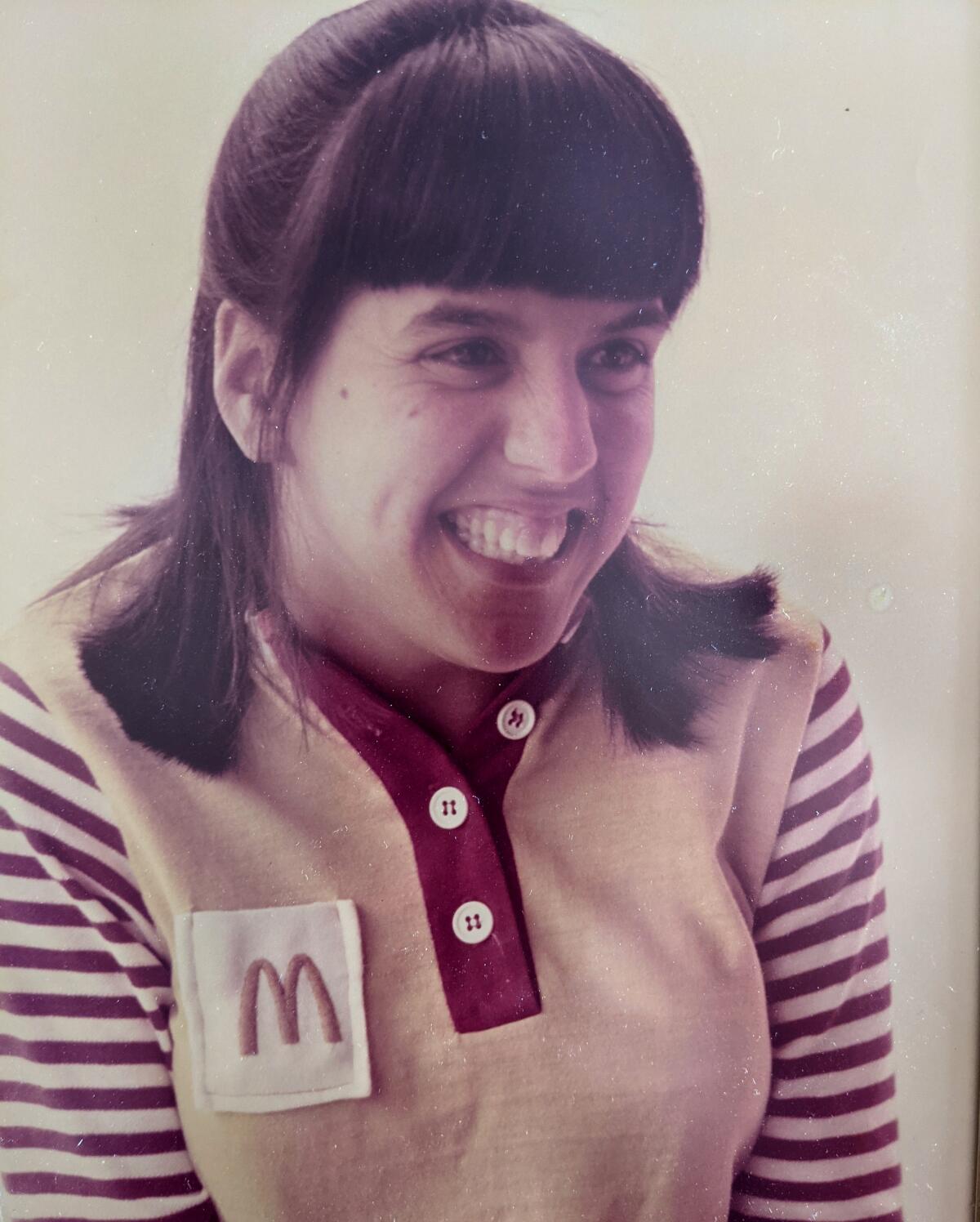
As a kid, Erik was always game for family trips to McDonald’s, a regular weekend activity that delighted Karen. Although there were McDonald’s near their home, Eugene drove his kids to an out-of-the-way outpost because “Karen liked a car ride,” Erik said. “When we would go in there, Karen would just start clapping her hands.”
Years later, Erik would continue a version of the McDonald’s tradition, bringing Karen her favorite meal from the restaurant — a cheeseburger, French fries and a Coca-Cola — when he visited her at a Chatsworth group home where she lived for about 20 years.
Losing a loved one to COVID-19 can feel isolating. But survivors find solace in online communities and support groups.
But the COVID-19 pandemic made it tough to see Karen over the last year or so, and the siblings had only recently gotten back into a rhythm. Their trip to Lake Balboa Park marked a jubilant return to normalcy. Karen delighted in a ride on a surrey cycle pedaled by Erik and his girlfriend, Renee Aguilar.
Erik remembers how Karen loved the wind blowing in her face. And how she laughed at the dinging of the bike’s bell. “I’d do anything I could to make her laugh,” he said.
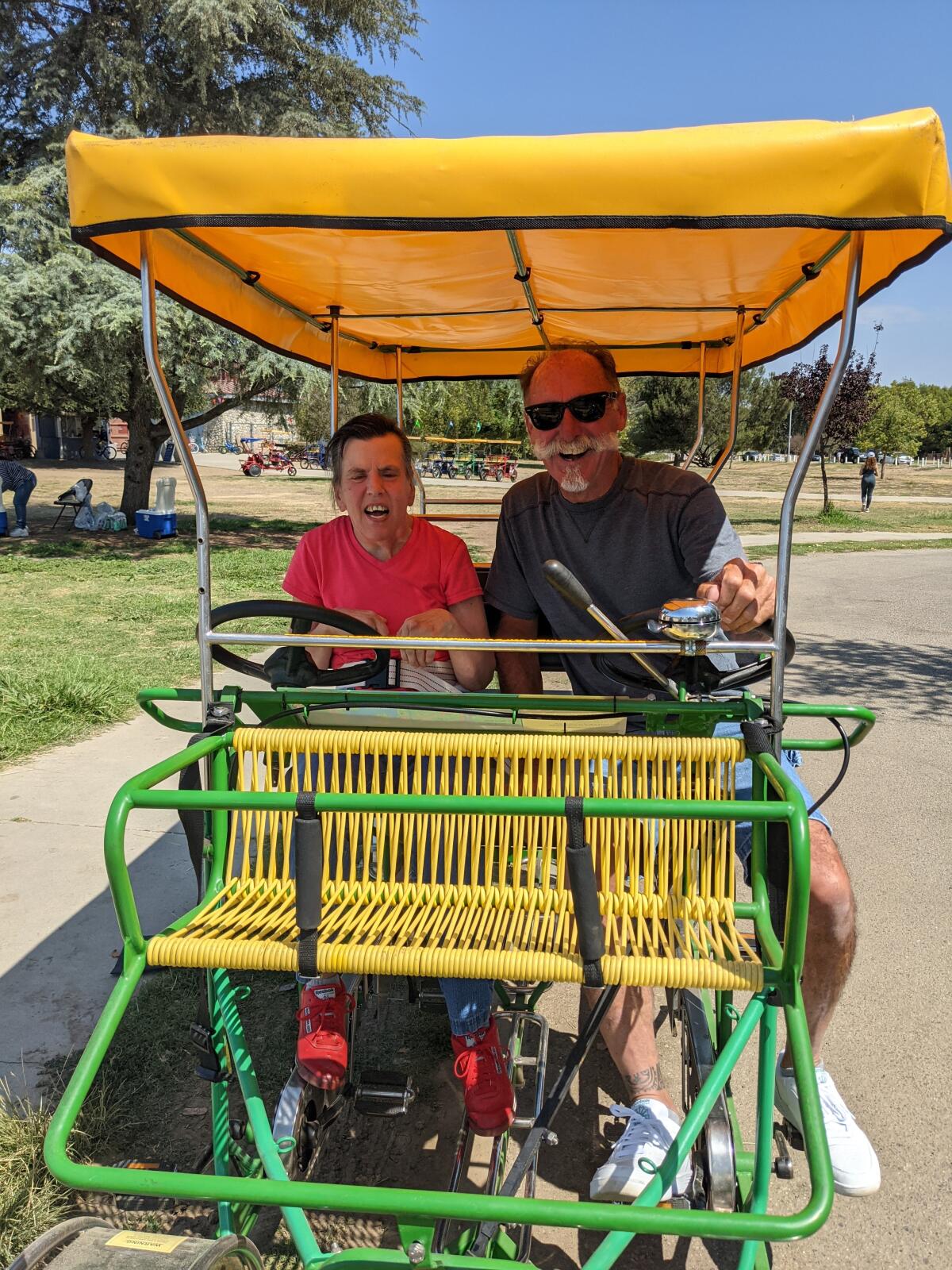
The Sydow family used to vacation at a quiet beach in Cambria and for Erik the ocean is a respite. About seven years ago he got into competitive ocean canoeing, and it has drawn him to events in Hawaii and Rarotonga in the Cook Islands. He even topped his division in his first race — in Redondo Beach in 2015 — despite a big mistake. Erik hadn’t grasped the rules of the competition and wasn’t even in the water when the race began. He had to make up for lost time.
“All the anger and embarrassment — I don’t think I ever paddled so hard and felt so good!” he said.
A return to the ocean should be a balm.
Erik said he intends to scatter the ashes of his father, mother and sister in a private ceremony at that quiet beach in Cambria.
His grief for Karen is raw, the sort that he said can come on strong unexpectedly. It knocks him sideways. And in these moments, Erik returns to a treasured memory.
He said that whenever his visits with his sister were drawing to a close, he’d give her a hug and a kiss, telling her, “I love you.” Once, about 10 years ago, the woman who only said “mom,” “piano” and “Donalds” did something remarkable.
“She said it two times, clear as a bell: ‘I love. I love,’” Erik recalled. “It only happened that one day. I don’t know what brought it out of her.”
More to Read
Sign up for Essential California
The most important California stories and recommendations in your inbox every morning.
You may occasionally receive promotional content from the Los Angeles Times.

